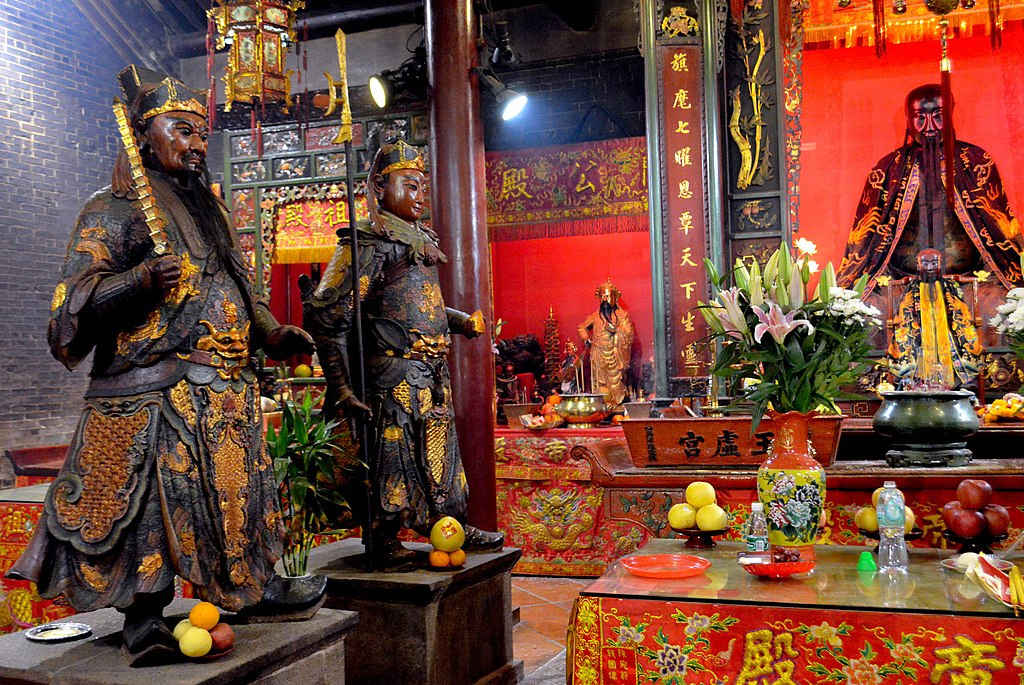China is an enigmatic, ancient nation where you may discover numerous gods and goddesses. Each God had a unique sphere of influence and power, and the most significant ones had their shrines and temples.
They are intriguing characters from the history of ancient China since they were essential to the development of many of the ancient Chinese’s philosophies.
This post will go through the 10 famous gods and goddesses in China.
1. Guanyin – Goddess of Compassion, Mercy and Kindness
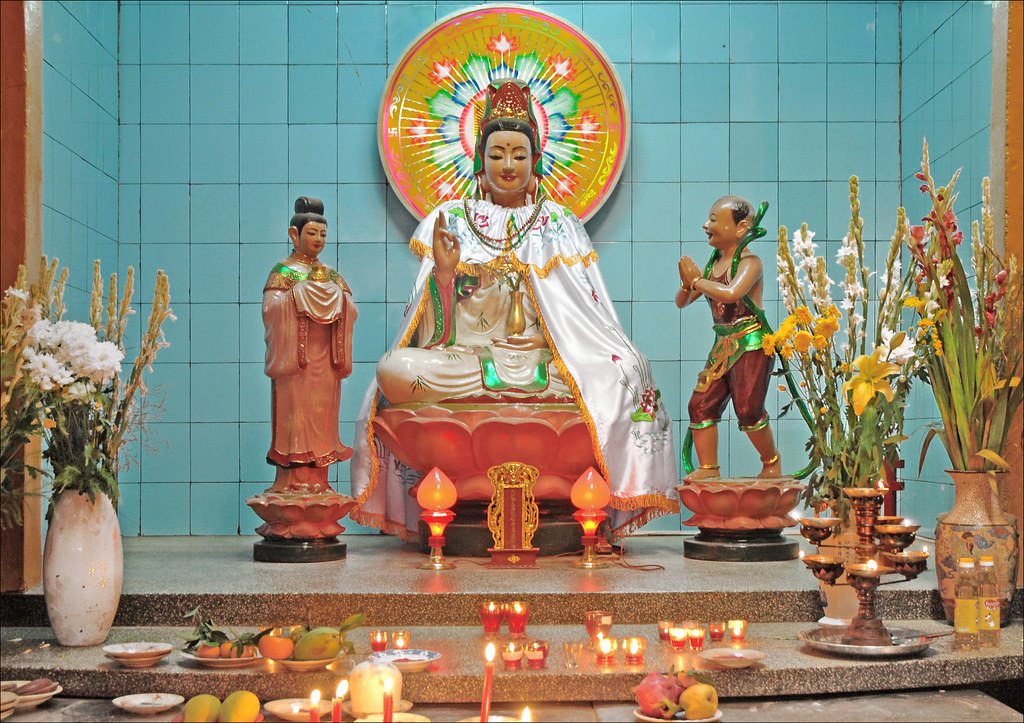
Guan Yin, the beloved Goddess of Mercy, is a figure from Chinese mythology. Her name itself meant “one who hears the cry of the suffering in the earth.”
She served as the guardian of anglers and sailors. Guan Yin appears as a woman wearing tasteful white clothing, holding an osier branch in one hand and a pitcher of water in the other to represent her deep empathy and compassion.
2. Yuhuang – Jade Emperor
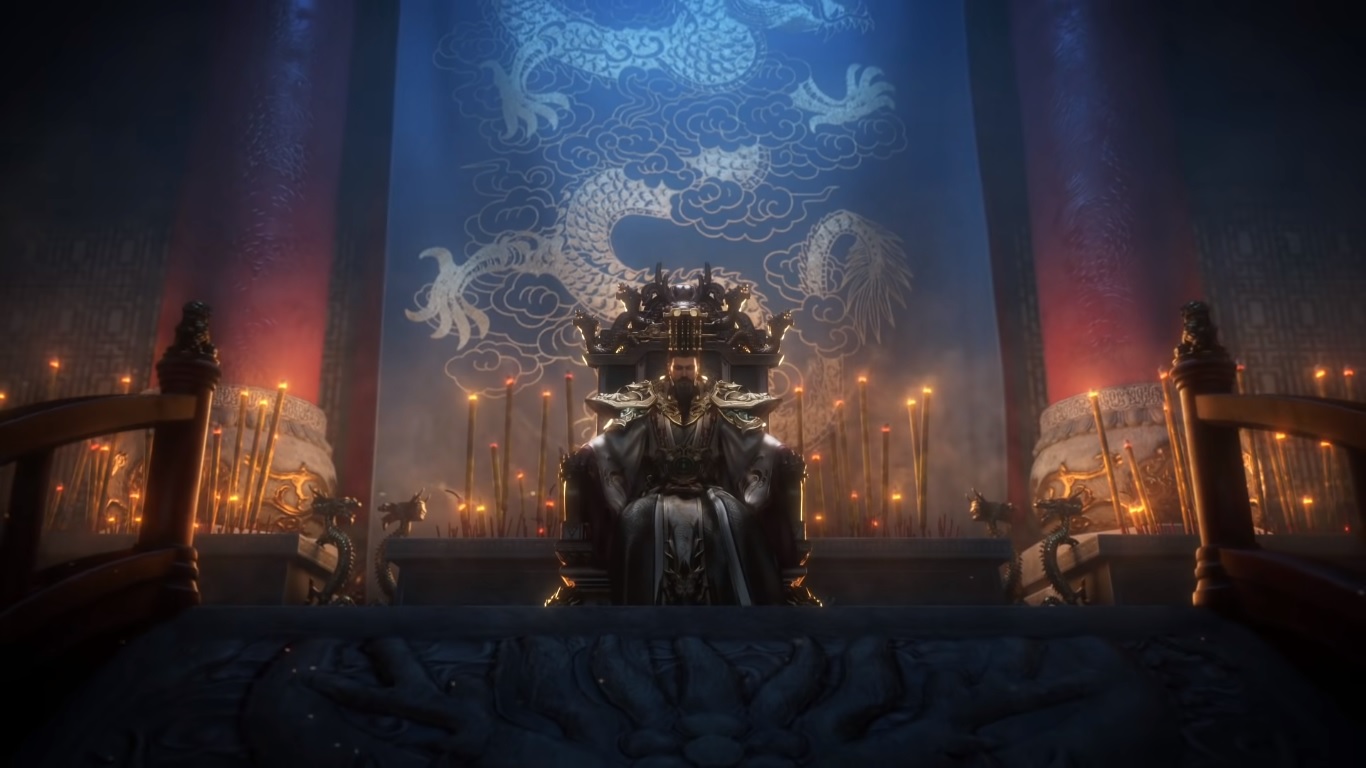
Another significant and well-known god in Chinese folk tales is the Jade Emperor. People call him the first Chinese emperor, the lord of heaven, and one of the most powerful gods.
Many legends claim that he was once a mortal, occasionally a soldier or the authentic emperor, before becoming a god.
The Jade Emperor still enormously affects Chinese culture today, especially during Lunar New Year. Chinese people believe that he will assess each person’s character for the previous year at the beginning of the New Year and discipline or motivate them to work harder accordingly.
3. Wangmu Niangniang – Queen Mother of the West
One of the oldest and strongest deities in Chinese mythology is Xiwangmu. She has complete authority over all aspects of creation, death, and life.
She is the Jade Emperor’s wife. Her responsibility is to care for the Peaches of Immortality in the gardens of their palace.
Among her many responsibilities, she also calculates each living thing’s longevity and controls the occurrence of significant disasters.
However, some believe Xiwangmu was originally a fierce demon that resided in the highlands and wreaked havoc. She atoned for her terrible deeds, attained enlightenment, and transformed into a deity.
4. Yan Wang – King of Hell
Yan Wang is the King of Hell in Chinese mythos. Yan Wang is in charge of the afterlife, rules the ten levels of Diyu, the Chinese Hell, and determines the destiny of the deceased.
Besides his secretary, he also has the support of two terrifying gatekeepers of Hell, Horse-Face, and Ox-Head. They deliver the recently dead souls before him for judgment.
Although Yan Wang is one of the feared gods in religion, he was not an evil god.
According to some readings, Yan Wang was not a specific person but more a title. A King of Hell who has completed his term in Hell has the option of returning to Earth or ceasing to exist.
5. Long Wang – Dragon Kings
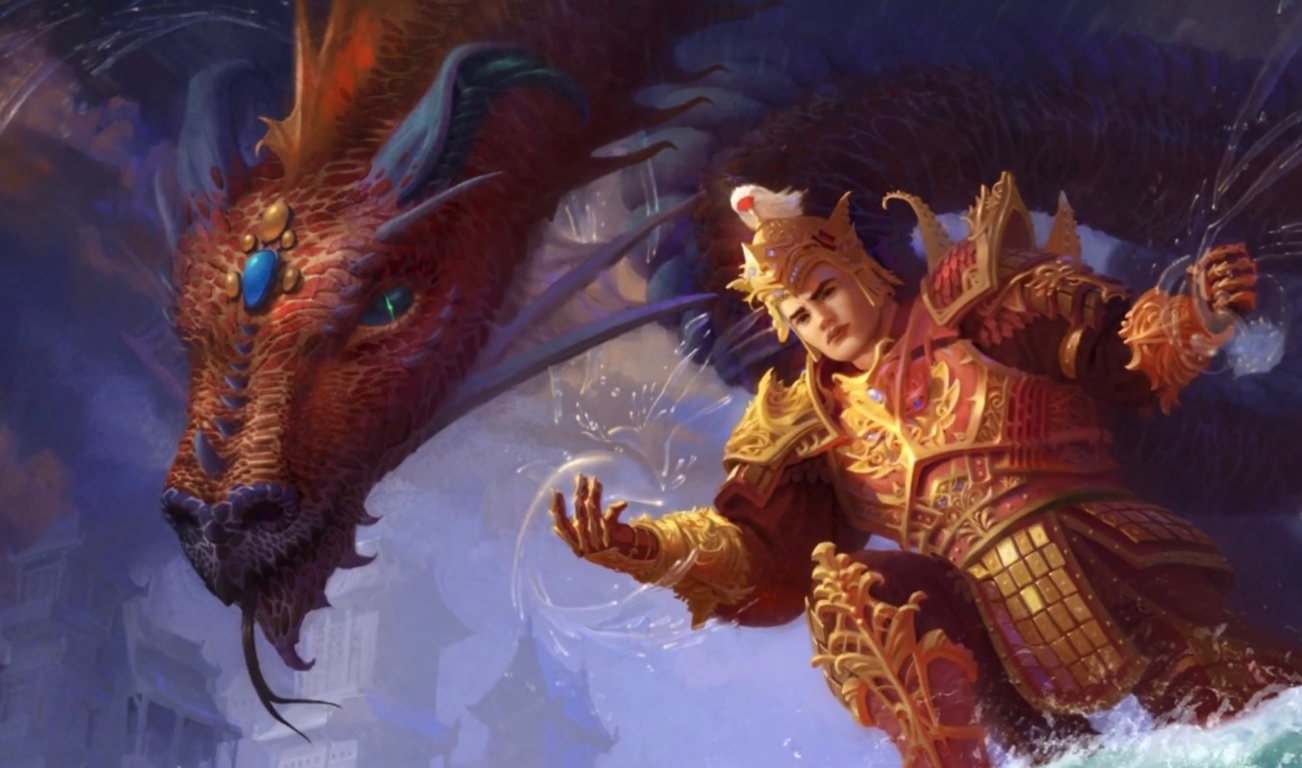
Longwang, sometimes known as the “Dragon King,” rules the oceans. He is a terrifying guardian god who rules over all dragons, marine life, and weather.
People believe Longwang is a sign of good luck and the mythical personification of having a temper.
With his brothers, he resided in a stunning sea palace where they frequently dined on priceless diamonds and pearls. Without exchanging a word, the brothers could connect telepathically and comprehend one another completely.
It’s easy to see temples honoring him along the routes that run along the coast. People call on him when a drought happens.
6. Nüwa – Mother Goddess
According to Chinese mythos, Nuwa, known for creating all of humanity, was the first creature to possess the capacity for reproduction.
Due to the harsh matriarchal nature of ancient China, people worship Nuwa as an essential divinity.
She appears in many tales but is most frequently known for her role in China’s creation story. They said she repaired a gap in the sky after a catastrophic flood to save humanity.
Nuwa is still a well-liked divinity in modern times. Women typically pray to her for help with their marriages or reproductive problems.
7. Nezha – Marshal of the Central Altar
Nezha is a precocious deity in Chinese mythos. He was born with a superpower and the ability to talk after spending forty months in his mother’s womb.
Nezha gave himself as a sacrifice after inflicting the anger of the sea dragon king on his parents for the deity to change his mind and stop flooding.
Nezha is a kind of guardian saint for outcasts in life and is particularly well-liked among teens. He is also a favorite of cab drivers and other drivers since he rides around on blazing wheels.
8. Ba Xian – The Eight Immortals
According to Chinese mythos, the Eight Immortals is a team of legendary heroes from the distant past. They battle for good and defeat evil.
The Eight Immortals are well-known throughout the Shang and Tang dynasties. They are supposed to reside on a collection of islands in the Bohai Sea.
The poet Wu Yuantai of the Ming Dynasty was the first to record their tales. Each member had their own stories and myths.
The Ba Xian continues to be a topic in literature, art, television, and film today.
9. Caishen – God of Wealth
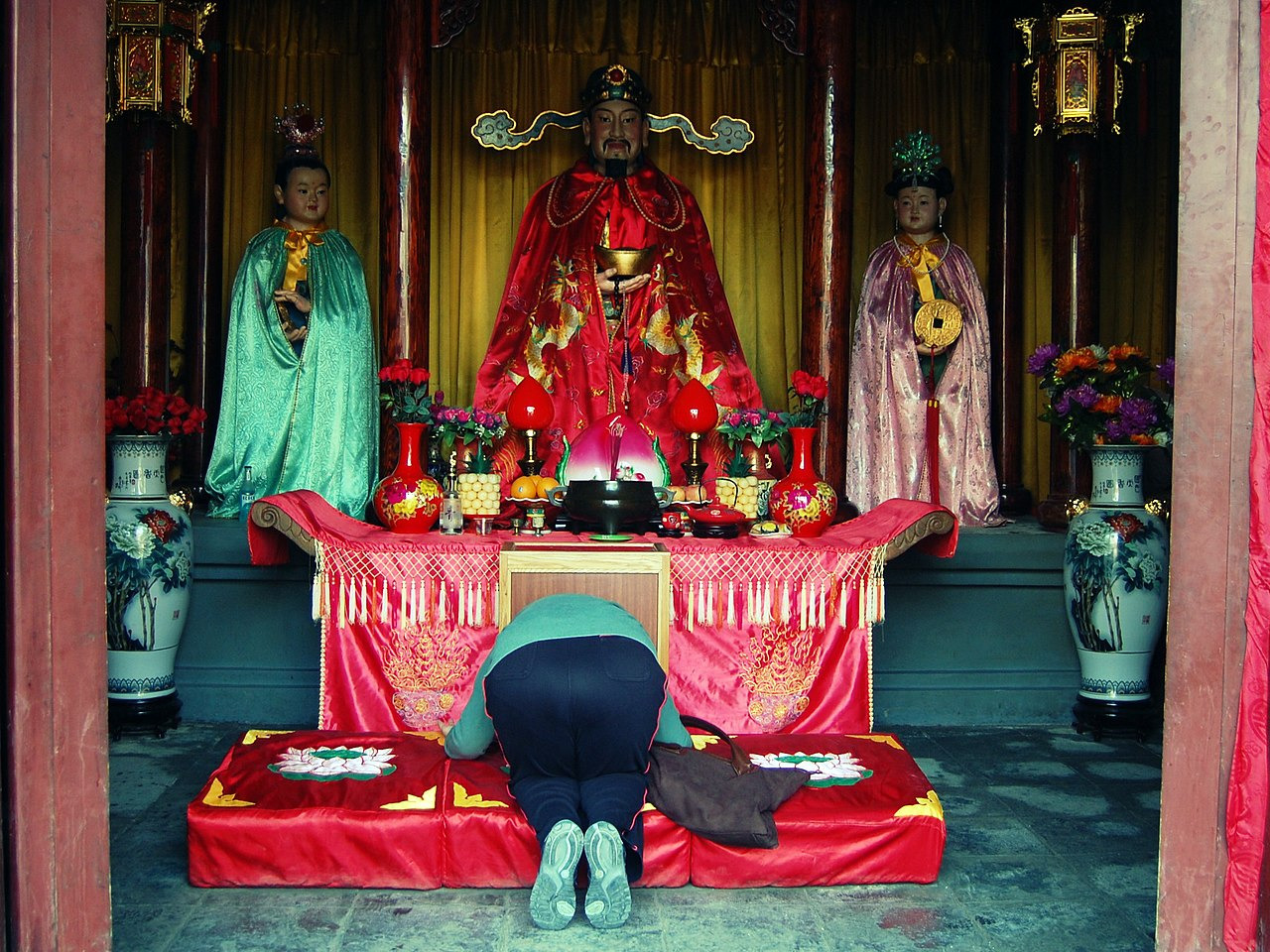
Caishen is the deity of riches and money in Chinese mythos. Taoism and Chinese mythology honor him. During the Lunar New Year celebrations, people hope to see God bless their next year with fortune.
In works of art, he frequently appears riding a stunning black tiger. He was accompanied by a diverse group of attendants carrying fruits, gold, and other riches that represent the symbols of wealth.
Caishen possesses an instrument that can transform common stone into gold. Therefore one could consider him an initial alchemist.
10. Chang’e – Goddess Of The Moon
She was a lady who was well-known for her attractiveness throughout China before turning into the goddess of the moon. She had a milky-white complexion, black hair, and cherry-blossom-like lips.
Chang’e is renowned in Chinese myth for snatching a potion of immortality from her famous archer husband, Hou Yi. She fled to become the moon goddess then.
In other myths, Chang’e usually appears with a rabbit on the moon as she grinds the plants into a powder to create the Immortality Elixir.
People frequently arrange sweets and fruits on outdoor altars for Chang’e to grace in the Mid-Autumn Festival. People also enjoy mooncakes decorated with images of Chang’e and the rabbit during the event.
The most famous legend of how the Mid-Autumn festival began is the romantic love story between HouYi and Chang’e.
FAQs
Who is the most famous Chinese God?
Shangti is the highest deity of law, order, justice, and creation.
Additionally, Chinese people also call him by other titles like Jade Emperor, Yellow Emperor, or Yu Huang Shang-Ti.
Who is the most beautiful Chinese goddess?
Miao people revere the goddess of beauty known as Yang Asha.
What God do the Chinese believe in?
Various cultural gods appear in Chinese mythology and history. They are environmental deities, ancestral ideas of human tribes, or notions of politeness.
Conclusion
The Chinese gods and goddesses depicted in Chinese mythology provide knowledge and teach humans numerous things.
Since the legendary stories of ancient China are tied to the history of the ancient world, the next generation should consider the truth that they contain.
Every deity had a unique role in people’s lives and the universe’s functioning, from private moments to significant national events like the end of a dynasty.
Do you know any more well-known Asian gods or Chinese goddesses?

